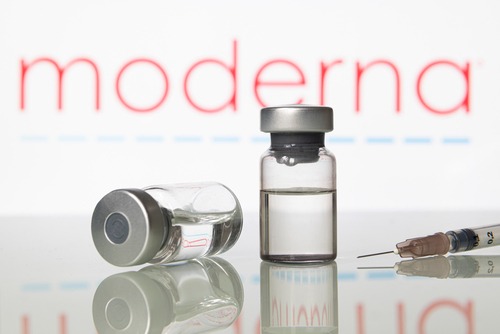
Moderna, Inc. announced major investments this week to bring global rollout of its COVID-19 vaccine to as many as 3 billion doses next year and somewhere between 800 million and 1 billion doses this year.
The increase in supply stems from new funding commitments to Moderna’s owned and partnered manufacturing facilities. However, the actual amount of doses to be produced will vary depending upon the dosage levels of the vaccine produced. This must be stressed, as Moderna is currently working to gain authorization for a lower dose product mix, along with potential variant booster vaccines and pediatric primary vaccine doses.
Currently, the vaccine is authorized for use at the 100 μg dose level.
“As we follow the rapid spread of SARS-CoV-2 variants of concern, we believe that there will continue to be significant need for our mRNA COVID-19 vaccine and our variant booster candidates into 2022 and 2023,” Stéphane Bancel, CEO of Moderna, said. “We are hearing from governments that there is no technology that provides the high efficacy of mRNA vaccines and the speed necessary to adapt to variants while allowing reliable scalability of manufacturing. Today we have announced that our investments in Europe, including Spain, France and Belgium, Switzerland, and the U.S., will allow us to deliver up to 3 billion doses in 2022, depending on the mix of product between primary series of vaccination and variant boosters.”
Moderna called the investments necessary due to predictions of a rising need for booster vaccinations in 2022 and beyond to grant users resistance to COVID-19. Both raw materials and finished products will be boosted to guarantee committed supplies. Notably, these funding increases will be in addition to other announced increases in formulation, fill and finish in the United States in collaboration with Catalent and Sanofi.
According to existing studies pointed to by Moderna, immunity provided by vaccines is expected to wane within 12 months. Further, the rising variants have lower neutralizing antibody titers that could give rise to infections among those already thought infected or vaccinated, making boosters necessary.
Additionally, Moderna has touted data that shows the current formulation of its mRNA-1273 vaccine could be reformatted to provide a three-month refrigerated shelf life for easier distribution to primary care settings. The vaccine is currently approved for just a single month of storage at refrigerated temperatures, although it can be maintained for up to seven months in freezer conditions.




